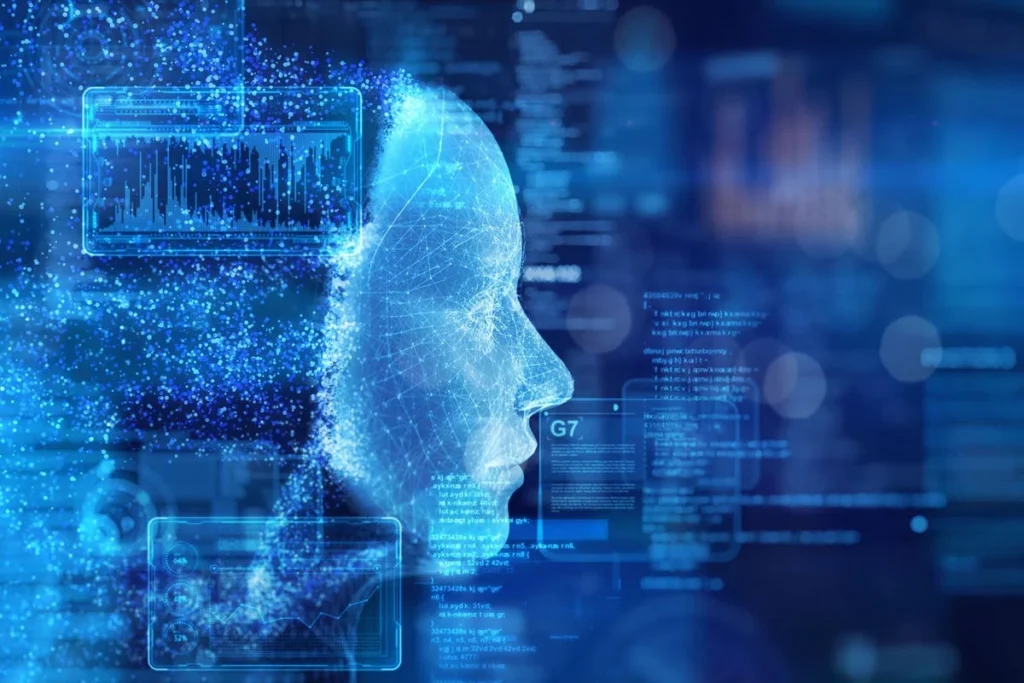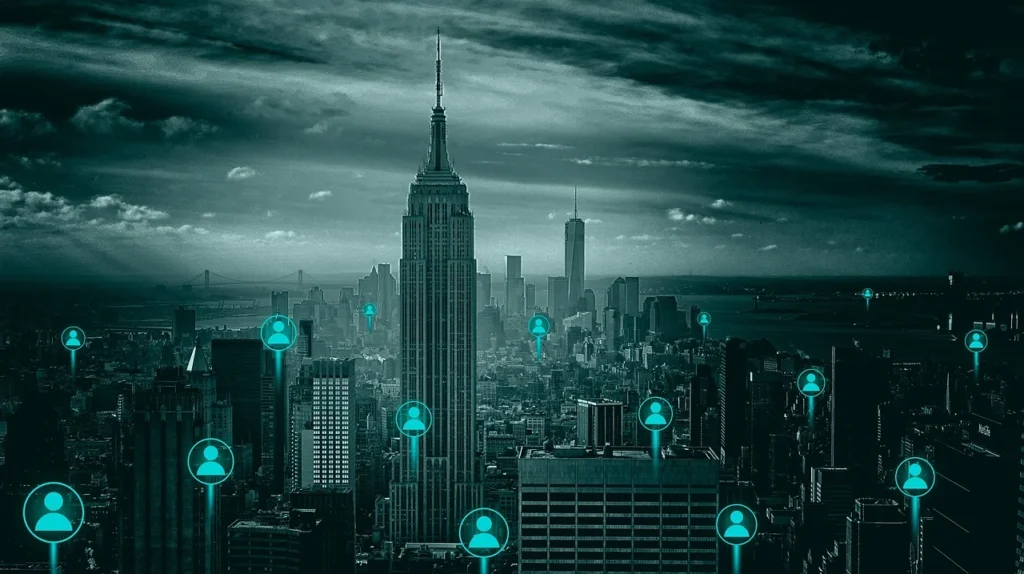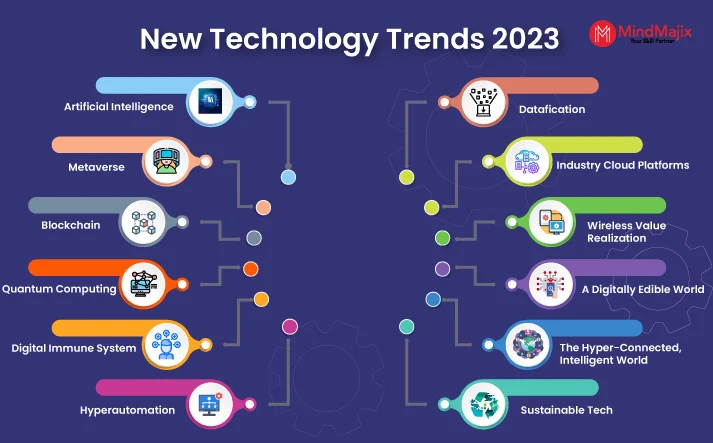Artificial intelligence (AI) is a pivotal technology of the future, revolutionizing the way we live and work. It encompasses the development of intelligent machines that can perform tasks that typically require human intelligence, such as speech recognition, decision-making, and language translation. AI is poised to transform various industries, from healthcare and finance to transportation and entertainment, by streamlining processes and enhancing productivity. As the capabilities of AI continue to advance, it has become a focal point of research and innovation, with the potential to shape the future in unprecedented ways.
The concept of artificial intelligence has sparked widespread curiosity and fascination, prompting questions about its ethical implications, potential risks, and societal impact. People are keen to understand how AI can be leveraged to address complex challenges, such as climate change and healthcare disparities, while also grappling with concerns about job displacement and privacy infringements. With the rapid evolution of AI technology, there is a growing interest in exploring its applications in diverse fields, including education, cybersecurity, and creative arts, to unlock new possibilities and address pressing global issues.
1. The Evolution of Artificial Intelligence
Artificial Intelligence (AI) has come a long way since its inception, evolving from simple rule-based systems to complex machine learning algorithms and neural networks. The field of AI has seen rapid advancements in recent years, fueled by the availability of big data, powerful computing resources, and breakthroughs in algorithms. This has led to AI being integrated into various aspects of our daily lives, from virtual assistants and recommendation systems to autonomous vehicles and medical diagnosis.
As AI continues to evolve, researchers and developers are exploring new frontiers such as explainable AI, reinforcement learning, and quantum computing. These advancements hold the potential to further enhance the capabilities of AI systems and expand their applications across diverse industries, revolutionizing how we work, communicate, and interact with technology.
2. Ethical Considerations in AI Development
As AI technologies become more pervasive, ethical considerations surrounding their development and deployment have come to the forefront. Issues such as bias in AI algorithms, data privacy, job displacement, and the societal impact of AI have sparked debates and calls for responsible AI development. It is crucial for stakeholders in the AI ecosystem, including researchers, policymakers, and industry leaders, to address these ethical considerations and ensure that AI is developed and used in a way that aligns with societal values and norms.
Efforts to promote ethical AI include the development of guidelines and frameworks for responsible AI use, as well as initiatives to increase diversity and inclusion in the AI workforce. Additionally, ongoing discussions about AI governance and regulation seek to establish standards that promote transparency, accountability, and fairness in AI systems.
3. AI in Healthcare and Medicine
The application of AI in healthcare and medicine holds great promise for improving patient care, diagnostic accuracy, and treatment outcomes. AI-powered systems can analyze large volumes of medical data, including imaging scans, genetic information, and patient records, to assist healthcare professionals in making more informed decisions. From early disease detection to personalized treatment recommendations, AI has the potential to revolutionize the healthcare industry and drive advancements in precision medicine.
Furthermore, AI technologies are being used to streamline administrative processes, optimize hospital operations, and enhance patient experiences. Through the integration of AI-driven tools and platforms, healthcare organizations can harness the power of data to deliver more efficient and effective care to individuals and communities.
4. The Role of AI in Environmental Sustainability
With the growing global focus on environmental sustainability, AI is being leveraged to address pressing ecological challenges. From climate modeling and natural disaster prediction to resource management and renewable energy optimization, AI has the potential to drive innovative solutions for environmental conservation and sustainable development. By analyzing complex environmental data and simulating various scenarios, AI systems can contribute to informed decision-making and proactive interventions to mitigate environmental risks.
AI-powered technologies are also being used to monitor and manage wildlife populations, track deforestation and urbanization, and support biodiversity conservation efforts. Through its predictive and analytical capabilities, AI can empower environmental scientists and policymakers to better understand and address the complex interplay between human activities and the natural world.
5. The Future of AI-Assisted Education
AI has the potential to transform the education landscape by personalizing learning experiences, automating administrative tasks, and providing valuable insights into student performance and engagement. Adaptive learning platforms, intelligent tutoring systems, and educational chatbots are just a few examples of how AI is being integrated into educational settings to support both students and educators. By leveraging AI technologies, educational institutions can cater to diverse learning styles and individual needs, ultimately enhancing the overall quality of education.
Furthermore, AI-driven tools and analytics can help educational institutions optimize resource allocation, identify areas for improvement, and implement data-driven strategies to enhance student success. As AI continues to advance, the potential for immersive virtual learning environments, augmented reality experiences, and AI-generated educational content holds the promise of reshaping traditional educational paradigms.
6. AI and the Future of Work
The increasing integration of AI into the workforce is reshaping the nature of work and the skills required for various professions. While AI has the potential to automate routine tasks and enhance productivity, it also raises concerns about job displacement and the need for upskilling and reskilling the workforce. As AI technologies continue to advance, it is essential for individuals and organizations to adapt to the changing labor landscape and embrace opportunities for collaboration with AI systems.
Additionally, the emergence of AI-powered tools for recruitment, talent management, and workplace analytics is transforming HR practices and workforce management. By leveraging AI-driven insights, organizations can make more informed decisions about talent acquisition, performance evaluation, and employee well-being, ultimately shaping the future of work in a rapidly evolving digital economy.
7. AI and the Future of Transportation
Autonomous vehicles, traffic management systems, and predictive maintenance solutions are among the many ways AI is revolutionizing the transportation industry. AI-powered technologies have the potential to improve road safety, reduce traffic congestion, and optimize transportation logistics, ultimately leading to more efficient and sustainable mobility solutions. As AI continues to advance, the prospect of fully autonomous and interconnected transportation networks holds the promise of reshaping urban mobility and the way we commute.
Furthermore, AI is driving innovations in public transportation, ride-sharing services, and smart infrastructure design, paving the way for more integrated and user-centric transportation experiences. By harnessing the power of AI, transportation stakeholders can address complex challenges such as energy efficiency, infrastructure resilience, and equitable access to mobility, shaping the future of transportation in a rapidly urbanizing world.
8. AI and Creativity: Exploring New Frontiers
While AI has traditionally been associated with analytical and cognitive tasks, its potential to augment human creativity and artistic expression is increasingly being explored. From AI-generated art and music compositions to creative writing and design, AI-powered tools and platforms are enabling new forms of creative collaboration and expression. As AI continues to evolve, it has the potential to inspire and empower individuals across diverse creative disciplines, challenging traditional notions of human creativity.
Moreover, AI-driven creativity is giving rise to new opportunities in fields such as advertising, entertainment, and digital media, where data-driven insights and personalized experiences are shaping the way content is produced, distributed, and consumed. Through the fusion of AI and creativity, new avenues for innovation and expression are emerging, redefining the boundaries of human-machine collaboration in the creative process.
9. The Intersection of AI and Cybersecurity
As the digital landscape becomes increasingly complex and interconnected, the role of AI in cybersecurity is becoming more critical. AI-driven cybersecurity solutions can analyze large volumes of network traffic, detect anomalies, and respond to potential security threats in real time, bolstering the resilience of organizations against cyber attacks and data breaches. By leveraging AI, cybersecurity professionals can stay ahead of evolving cyber threats and proactively safeguard digital assets and sensitive information.
Furthermore, AI technologies are being used to automate threat intelligence, enhance incident response capabilities, and strengthen the overall security posture of organizations. As cyber threats become more sophisticated and pervasive, the integration of AI into cybersecurity strategies is essential for mitigating risks and ensuring the integrity and confidentiality of digital infrastructures.
10. The Future of AI Research and Innovation
As AI continues to advance, the future of AI research and innovation holds exciting possibilities across diverse domains. From quantum computing and neuromorphic engineering to ethical AI governance and human-AI collaboration, researchers and innovators are exploring new frontiers that have the potential to redefine the capabilities and impact of AI in society. The convergence of AI with other emerging technologies, such as biotechnology, nanotechnology, and space exploration, opens up new avenues for interdisciplinary collaboration and groundbreaking discoveries.
Furthermore, ongoing efforts to democratize AI and expand access to AI tools and resources are fostering a global community of AI researchers and practitioners, driving innovation and inclusive participation in shaping the future of AI. As AI continues to evolve, the pursuit of ethical, human-centered AI solutions and the exploration of AI’s potential to address complex societal challenges will be at the forefront of AI research and innovation in the years to come.
| Technology | Artificial Intelligence |
|---|---|
| Description | Artificial Intelligence (AI) refers to the simulation of human intelligence in machines that are programmed to think and act like humans. These machines are designed to perform tasks such as learning, problem-solving, speech recognition, and decision making. |
| Applications | AI is being used in various fields including healthcare, finance, transportation, and entertainment. It is used for medical diagnosis, financial trading, autonomous vehicles, and content recommendation. |
| Future Impact | AI is expected to revolutionize the way we live and work. It has the potential to increase efficiency, improve decision making, and create new opportunities in different industries. However, it also raises ethical and societal concerns that need to be addressed. |
| Challenges | Some of the challenges associated with AI include job displacement, privacy issues, and the potential for misuse of the technology. There is also a need for regulations and standards to ensure the responsible development and use of AI. |
conclusıon
Technology of the Future: Artificial Intelligence refers to the development and use of machines that are capable of simulating human intelligence. AI has a wide range of applications and is expected to have a significant impact on various industries. However, there are also challenges and concerns that need to be addressed to ensure the responsible and beneficial use of AI.




